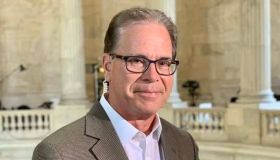WASHINGTON — The U.S. Senate has advanced a massive government spending package with bipartisan support.
The bill cleared a major hurdle in a 70-25 vote to advance to debate on the Senate floor about the $1.7 trillion spending plan. Within the bill at its core is another aid package for Ukraine in its war with Russia, over $858 billion in defense spending, and another $800 billion in non-defense spending. Both are significant increases from the last fiscal year.
“For me, this is about, since the time I’ve been here, a total lack of process,” said Sen. Mike Braun (R-IN) on Tuesday.
Braun was among the 25, many of whom are fiscal conservatives, who voted against advancing the spending package. His qualm with it is that once again he feels lawmakers are getting out of hand with how much the U.S. is spending.
He said Congress needs to be ahead of the curve in figuring out spending for the next fiscal year rather than rushing bills through at the last minute, which he says has been the case for every spending plan since he’s gotten to Congress.
“Until we get some type of process that’s put into place, I think for the American public, expect more of the same,” Braun said. “What I’d expect is that you’re going to get bloated budgets that increasingly are filling in the lack of political will to raise funds for whatever you’re spending.”
Instead, Braun said the US keeps borrowing money to the tune of $1.5 trillion a year.
Democratic Senate Majority leader Chuck Schumer said after the vote that there has been a process in place and that the Appropriations Committee in the U.S. Senate has been working for “a very, very long time” on the spending package.
“Most of the provisions were well known weeks and weeks and weeks in advance,” Schumer said. “Getting this bill done for the American people, which really matters, is the most important thing.”
Braun and many other Senate Republicans have been pushing Senate Minority leader Mitch McConnell not to go along with the spending bill and to instead push for another stopgap measure in order to wait for Republicans to take over control of the House next year.
That hasn’t seemed to be the case since McConnell called the spending bill a victory for Republicans.















